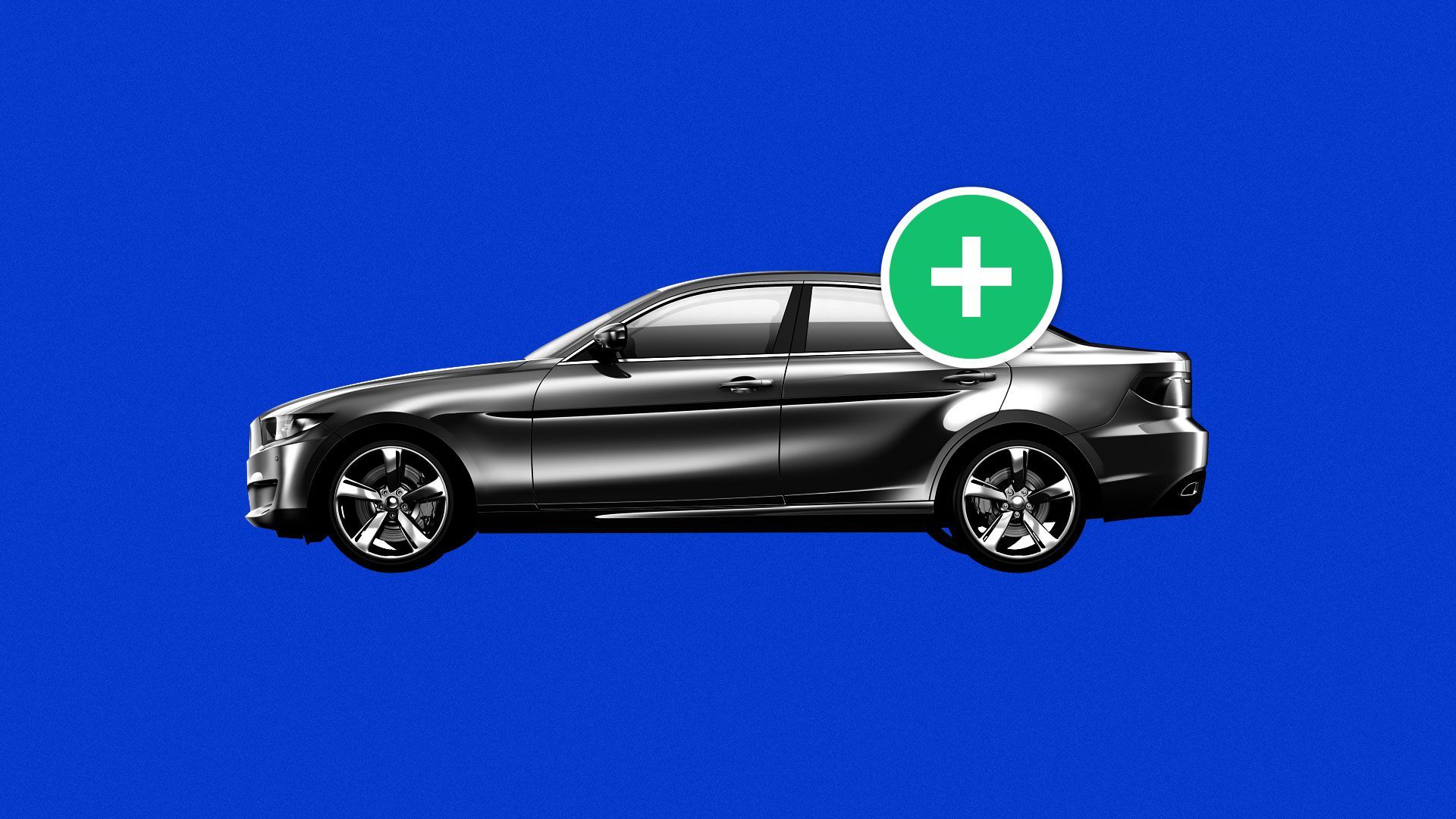Car-buying will never be the same after coronavirus
Add Axios as your preferred source to
see more of our stories on Google.

Illustration: Eniola Odetunde/Axios
The coronavirus is changing how people buy cars and get them serviced — behaviors likely to last long after the pandemic is over.
Why it matters: Confined by stay-at-home orders, people have discovered that getting a new car delivered is as easy as ordering groceries or takeout. Experts say they may never visit a showroom again, with consequences that will reverberate on every Main Street in America.
The big picture: It's already happening in China, where car sales are rebounding and dealers are reporting a sharp rise in virtual-showroom visits, writes ZoZoGo consultant Michael Dunne in Automotive News.
- Buy, for example, one of Chinese automaker Geely's models online and the car will be disinfected and delivered to your driveway, while the keys are delivered separately via drone.
The revolution is happening in the U.S., too.
- Consumers whose lease is expiring or who need to buy a car in a hurry want to do it safely, without visiting a showroom.
- The enabling technology is provided by digital finance startups like Roadster and Digital Motors or by larger automotive digital marketing companies like Cox Automotive.
How it works: Consumers already do much of their car-buying research online. Once they've settled on a model, they can seek out a dealer that offers a buy-from-home option.
- They can view that dealer's entire inventory online, searching for a car with all the features and options they want.
- Consumers can then build their own deal, adjusting payment options, including the term and down payment, and factoring in the value of a trade-in vehicle or added warranty or service plans.
- Credit approval occurs online, too.
- Companies say a three or four-hour showroom visit can be compressed into a 15-minute online process plus another 30 minutes for the home delivery.
Car dealers have been cautiously exploring online sales for years, but the economic toll from the health crisis has abruptly shoved them into the digital age.
- Orange Coast Auto Group owner Jon Gray says business at his Fiat Chrysler dealership in Costa Mesa, Calif., is down 50% since the pandemic struck, but online sales are picking up steam since he introduced the option a month ago — four months earlier than he'd planned.
- "Without a doubt when the coronavirus is over, this is going to have legs."
"If there’s a silver lining to this crisis, it is the rapid adoption of digital tools and processes" to modernize the car-buying process, says dealer strategy expert Dale Pollak, senior vice president at Cox Automotive.
Yes, but: Not all dealerships will be able to adjust quickly, which will likely lead to consolidation.
- "Any downturn or crisis is capitalism’s form of natural selection. It will absolutely weed out the weak," says Pollak.
The advantage could go to large regional dealer groups and publicly traded giants like Auto Nation, which have the technology resources, industry experts say.
- They could squeeze out mom-and-pop dealerships that have thrived for decades on personal relationships polished at the Chamber of Commerce or as sponsors of Little League teams.
- Dealers are struggling, with more than 2 in 10 fearing this might be the end of their dealership, according to a Cox survey.
What to watch: Many franchise dealers have invested millions of dollars to modernize their showrooms under strict guidelines from automakers. That could turn out to be a waste of money.
- In virtual car sales, all that's needed is a service center and a place to store inventory, says dealer consultant Mark Rikess.
- "You're going to see a lot of mom and pops, even in metro markets, who will say, 'This has passed me by. My dealership is still worth good money. I’m going to get out."
